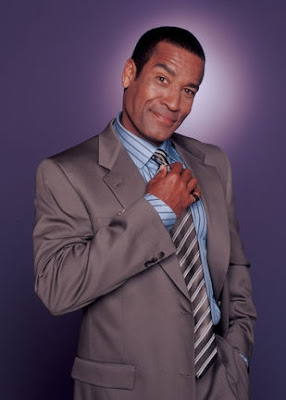My Cousin Vinny: More Than A Movie
As I look back at my childhood, I recall a number of formative events which shaped me into the adult I later became. Of those experiences, my first viewing of My Cousin Vinny ranks at the top of the list. Doubt me? It’s the honest truth.
My first Vinny experience came later than most. When the film was released in theaters twenty years ago this week, I was in the fifth grade and far too young to gain entry into an R-rated movie. To be honest, I did not even realize at the time I was being punished by oppressive movie restrictions. I was more interested in classics like Ace Ventura: Pet Detective and Wayne’s World. As you might imagine from this embarrassing confession, Vinny was not exactly on my radar in the early 1990s. As a result, I didn’t watch the film until my parents rented it on VHS some time later. Of course, I had to stay up late after my parents had retired to bed to watch it due to its R-rating.
The movie was, of course, hilarious, even though some of its humor was slightly over the head of a ten year old viewer. Above all else, Vinny’s opening statement to the jury stayed with me long after that first screening. In that scene, district attorney Jim Trotter (played by the late Lane Smith) gives a rousing opening statement forecasting the state’s damning evidence. Vinny, weary and exhausted from a night without slumber, slept through Trotter’s presentation. Undaunted, Vinny responds with the greatest opening statement in the history of film – “Everything that guy just said is bullsh*t. Thank you.” The jury was instructed to disregard the entire statement with the exception of the “thank you.” Nevertheless, he made his point. That young version of me hoped to do the same some day.
Fast forward to the fall of 1993. A friend of mine was running unopposed to be our 7th grade homeroom’s student council representative. A firm believer in democracy, I thought it would be un-American to permit an uncontested election for such a prestigious position. Unable to convince any of my other classmates to run, I decided to toss my name into the hat. I never really desired to become a member of the student council, but I did want to give my class another option, even if it was an untenable one. On the other hand, my friend clearly wanted the job and campaigned as if he were seeking a presidential nomination (minus the negative television ads and robocalls).
After a week of campaigning, we each gave a speech to our class prior to the election. My friend arrived fully prepared with note cards and a platform. I, on the other hand, had forgotten that it was even election day. My friend spoke first. He delivered a lengthy speech and set forward a clear agenda of (unachievable) educational reform. After concluding, he returned to his seat to thunderous applause. It was then my turn. I walked to the front of classroom, all the while trying to formulate clever impromptu remarks. At that time, I realized this was my chance to be Vinny. I knew saying, “Everything he just said is bullsh*t” would earn me an afternoon of tedium in detention. So, I decided to adapt Vinny’s speech for a 7th grade audience. My speech, like Vinny’s, consisted of just one sentence: “Everything he just said, I can do better.” Not quite as punchy, but it still got the point across, right?
While my teacher disapproved of my candor, she respected the First Amendment and allowed the election to go forward. Not that I cared. It wasn’t like I was going to win with that speech anyway. To my surprise, however, my class felt differently. I won in a landslide.
To date, I have not recreated Vinny’s infamous opening statement in a court of law. However, it taught me a valuable lesson. Let’s cut through all of the bull and tell the people what they need to hear. You’d be surprised how well people respond to the truth. That is the crux of Vinny. There is nothing wrong with cutting to the chase. This philosophy has served me well so far. After all, it did earn me a yearlong stint as a 7th grade student council representative.
Thanks for that, Vinny.
(To see a full index of our My Cousin Vinny twentieth anniversary coverage, please see here.).





















